Faculties and Services
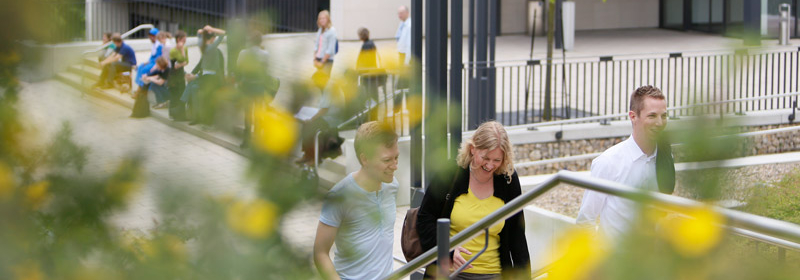 Photo: Photo: Hardy Welsch
Photo: Photo: Hardy Welsch
Faculties
-
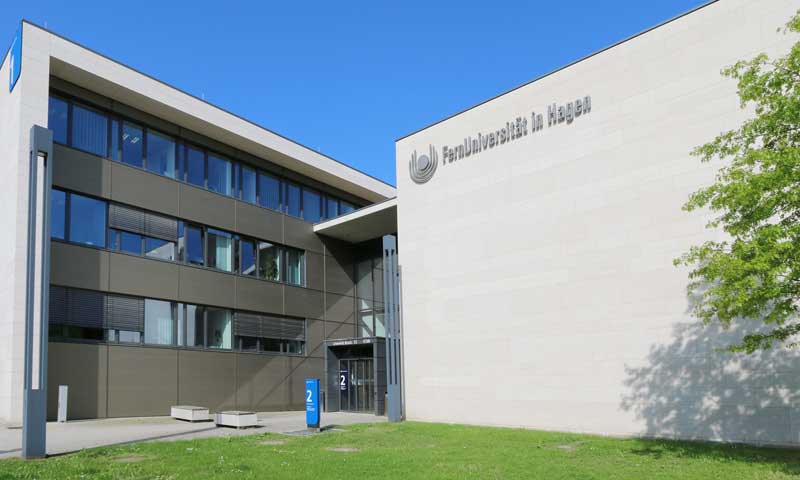
Photo: FernUniversitätBuilding 1: Humanities and Social Sciences Building The Faculty of Humanities and Social Sciences investigates collective action and societal phenomena by examining their emergence and development within specific historical, social, political or cultural contexts.
The faculty offers study programs in several disciplines, including educational and political sciences, literary studies, sociology, history and philosophy. Together, they cover a total of more than 20 subject areas.
The faculty’s researchers analyze and explain the mechanisms, history, and current state of knowledge of our society from a variety of perspectives. In this context, society can be understood as a place of diverse values and standards, life situations or cultural and social characteristics. The researchers’ findings are integrated into their teaching practice and used to further develop course contents.
-
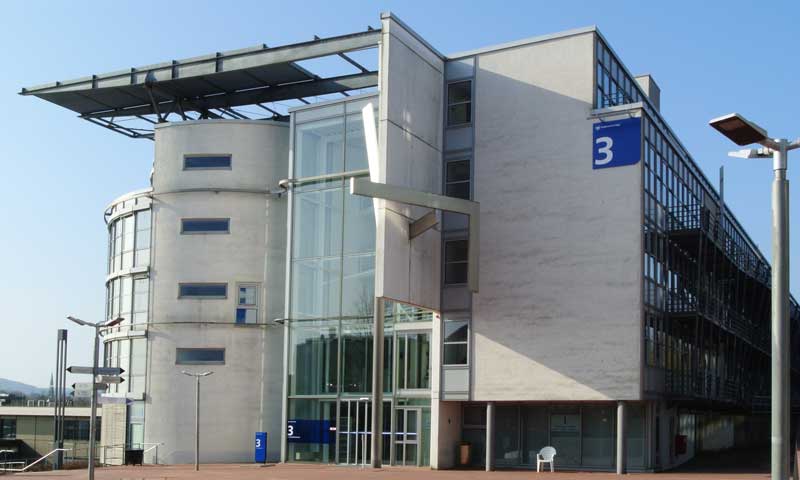 : FernUniversität
: FernUniversitätPhoto: FernUniversitätBuilding 3: Former Technology Center The Faculty of Mathematics and Computer Science thrives on the interdisciplinary connection between its central subject areas of mathematics and computer science. The common denominator between the faculty’s subjects lies in logical structures, formalisms, figures, formulae and algorithms, i.e. in mathematical expressions and logical thinking. The faculty’s resarchers detect underlying structures in various contexts, identify their patterns and describe them in the form of abstract models, or conversely, develop computerized and technological systems on the basis of these abstract models and descriptions.
For students, this means that none of these subjects can be studied without including content from the others. Computer science requires a basic knowledge of mathematics, while for mathematics some knowledge of computer science is also necessary. Due to the blurred boundaries between the disciplines, graduates find employment in a variety of fields. A degree in mathematics may quite easily lead to a position in the software industry, while graduates in computer science may find their place in the automotive industry.
-
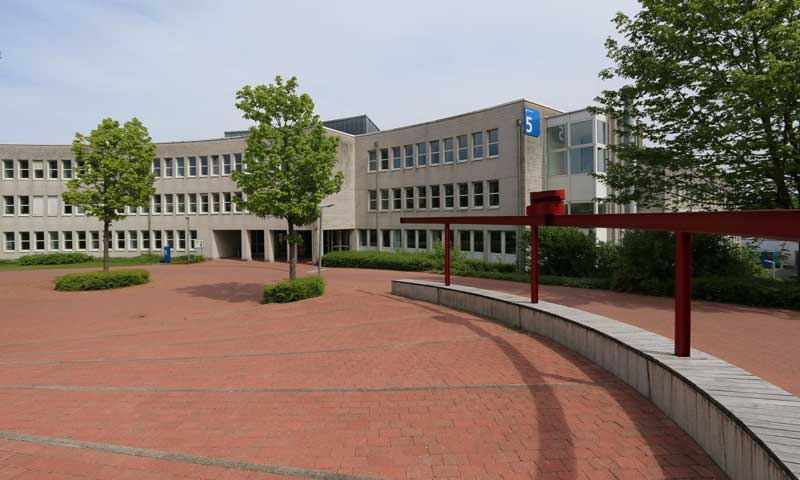
Photo: FernUniversitätBuilding 5: Philipp Reis Building The Faculty of Psychology is made up of 12 professorships whose research and teaching span the full spectrum of non-clinical psychology, including both traditional and innovative approaches to basic and applied psychology.
It is the only faculty at a state university in Germany to offer bachelor’s and master’s degree programs in psychology via distance learning, and these programs are the largest in the German-speaking area in terms of student numbers.
The faculty pools its expertise and research activities in two innovative interdisciplinary focal areas: “Psychology of Digitalized Education” and “Psychology, Diversity and Social Cohesion.” Through its excellent, internationally visible and publicly well-received research, the faculty contributes answers to research questions and issues of the future with high scientific and public relevance. It has unique expertise in quantitative online experimental and replication research.
-
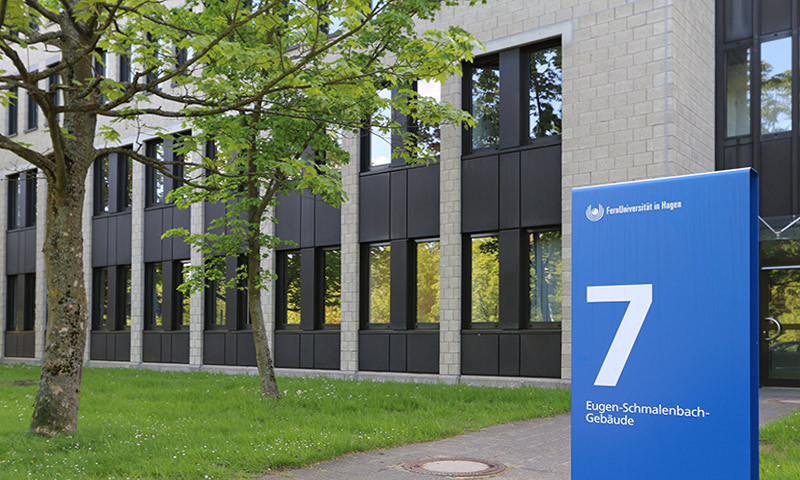 : FernUniversität
: FernUniversitätPhoto: FernUniversitätBuilding 7: Eugen Schmalenbach Building The Faculty of Business Administration and Economics is at the nexus between science, industry, commerce, and society and qualifies students for a position in this complex decision-making environment.
Thanks to the cooperation between the three subject areas of Business Administration, Economics and Business Informatics, the faculty takes an interdisciplinary approach and offers a broad academic portfolio in its bachelor’s and master’s degree programs. In terms of student numbers, it ranks among the largest faculties of economic sciences nation-wide.
The wide range of available modules means that students can specialize for their future fields of occupation at an early stage, including accountancy, organization/human resources, logistics, or marketing.
Besides subject-specific research, the faculty focuses on interdisciplinary and applied research and socially-relevant research questions. The faculty’s portfolio of specialized research includes analysis of computer-assisted corporate information processing, investigation of behavior in service processes, as well as research on environmental economics, sports controlling, personnel management, investment theory, and fighting corruption. In cooperation with the Faculty of Mathematics and Computer Science, the faculty’s researchers explore ways to optimize decision-making processes with the help of new software.
-
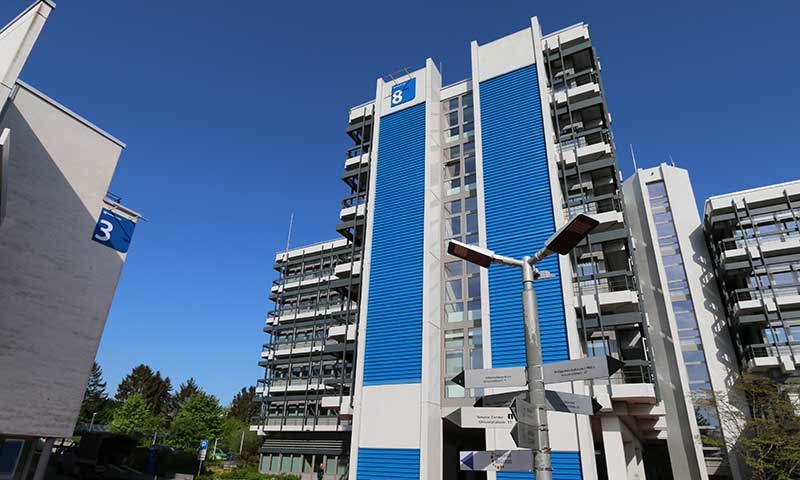
Photo: FernUniversitätBuilding 8: AVZ Building In addition to offering study programs with a high degree of occupational relevance, the Faculty of Law has also positioned itself as a place for excellent research. It enables students who do not wish to enroll at an on-campus university to study jurisprudence and acquire the degrees Bachelor of Laws, Master of Laws, and the German national degree “Erstes Staatsexamen.” The Bachelor of Laws and Master of Laws in particular attract working professionals who wish to acquire legal knowledge to support their work in business, in associations, or in administrative positions.
The Faculty of Law offers modules, certificates, and degree programs in contract design, negotiation techniques, argumentation, conflict resolution, and mediation, thus responding to changing demands on the legal profession.
From research projects in the various subject areas, these main areas of research have emerged: Basic Principles of Law and their economic relevance in an international context, Civil Law, Public Law and Criminal Law.

